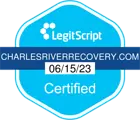Detox Center and Treatment for Xanax Addiction
Xanax is a potent and fast-acting tranquilizer. It is a type of benzodiazepine, which acts on the central nervous system to create a calming effect. It does this by enhancing the gamma-aminobutyric acid (GABA) that occurs naturally in our bodies. Alprazolam is the real name of the medication while Xanax is a brand name and the name by which the drug is known best. Other trade names include Alprazolam Intensol and Xanax XR. Doctors often prescribe it as a psychotropic medication to treat panic and anxiety disorders.
Xanax Addiction, Withdrawal and Treatment
Xanax is a Schedule IV controlled substance, which means that the government deems it to have a low potential for abuse. Despite that, over 2% of adults who take Xanax report abuse. That is more than 5 million people.
Over time, people will build up a tolerance to Xanax, at which point the risk of dependence is high. This is why it is so important to adhere to the guidance of your doctor and the instructions on the bottle. People with other use disorders may be at higher risk of a Xanax use disorder. Studies show, for instance, that people with an alcohol use disorder have higher benzodiazepine use. The use of the alcohol can also intensify the effects of the Xanax and make addiction more likely in that way.
Factors That Lead to a Xanax Addiction
People who take Xanax will often build up a tolerance to it. Tolerance can be a precursor to a Xanax abuse disorder. The person will need and want more of the drug. Continued use will lead to dependence and eventually the inability to cease use.
People with mental health disorders are often vulnerable to addiction. These are often the disorders that led to the Xanax use in the first place. This can result in an unfortunate cycle. The mental health disorder heightens the need for the medication, and the misuse of the medication heightens the disorder symptoms.
As mentioned, individuals who abuse alcohol or other substances are often more prone to a Xanax use disorder. This risk may be even higher if the abuse continues alongside the Xanax use. Social factors may increase risk. These include the ease of availability of the drug and relationships with families and friends. Doctors often cite a lack of knowledge as well. This is why most doctors will tell people about the dose-effect relationship and how dose escalation can lead to intoxication. This helps people avoid inadvertently abusing Xanax simply because they were not aware of the risks.
Thus far, we have discussed people who have developed an addiction through prescribed Xanax. People also develop use disorders by taking Xanax that they have acquired on the street. Some take it as a way to self-medicate for anxiety and the like, but many others use it for recreational purposes. In fact, some reports indicate that Xanax usage is surging among teens. An additional danger here is that use at such a young age makes these people more prone to addiction.
How Xanax Dependence Affects People
It is important to note that a Xanax use disorder can affect people very differently. People have different tolerances, and some will experience the effects more quickly, intensely and/or broadly. Another important note is that there is both a physical impact and a mental impact.
Mental Health
Xanax dependence and then addiction can have an overwhelming and harmful effect on one’s mental health. As mentioned, there may be preexisting mental health conditions, such as anxiety and panic attacks. The use disorder can lead to additional mental impairment. This can include:
- Delusions
- Depression
- Memory loss
- Cognitive dysfunction
It not only affects the mental health but can also disrupt emotional balance. People with Xanax use disorders are often irritable and prone to shifts in mood. There can also be behavioral changes. A person may no longer be interested in sex and may stop caring about hobbies that they once loved.
Physical Health
Many of the side effects of Xanax use are physical in nature. Those will often become more intense with a use disorder. You may also develop side effects that you had not experienced with Xanax before the dependence. Consider nausea and vomiting. Xanax can cause gastrointestinal discomfort. Most people taking Xanax as prescribed will not experience it. As the tolerance grows and use goes up, though, it becomes more common. Other physical health effects that may occur include:
- Fatigue
- Seizures
- Tremors
- Dizziness
- Dry mouth
- Slurred speech
- Poor coordination
- Erectile dysfunction
- Shortness of breath
- Insomnia and sleep disturbances
Xanax Withdrawal
Doctors do not recommend the sudden cessation of Xanax use. Experts estimate that 20-30% of benzodiazepine users will have trouble stopping use. About one-third of them will experience intense withdrawal symptoms. Furthermore, 50-80% of those who use the medication for six months or more will experience withdrawal even when reducing dosage. In both cases, people will often require a low dose of flumazenil to overcome the dependence.
Withdrawal Timeline
Understanding the withdrawal timeline can make a big difference in whether an individual gets free of the addiction. This is a fundamental reason why we educate clients on what to expect before the detox process begins. Withdrawal symptoms will typically begin within 24 hours of the last dose. They may occur as quickly as six hours. How long withdrawal symptoms last vary. It can range from several days to a month. It also depends on how long the person was taking the Xanax and how big their dose was. Withdrawal symptoms do not last as long when the person opts for medical detoxification. The acute withdrawal period is much less intense. Mild symptoms may linger but will generally be gone in a few days.
Withdrawal Symptoms
Xanax is stronger than many other benzodiazepines. It can therefore lead to severe symptoms without medical assistance. Anxiety, insomnia, loss of appetite and muscle pain and aches are all quite common. Some people may experience seizures or psychosis. Other common symptoms include:
- Headaches
- Nightmares
- Blurred vision
- Suicidal thoughts
- Difficulty breathing
- Nausea and vomiting
- Hypersensitivity to light and sound
- Numbness and tingling in the hands, feet or face
Xanax Detoxification
Going cold turkey is not recommended. The chance of failure is high, and symptoms can be severe. The preferred alternative is tapering. There are two core approaches to tapering. One is to reduce the dosage over time. This is the common approach when there is no use disorder. The other approach is medical detoxification. The detoxification occurs through no longer taking the Xanax. The flumazenil or another medication is prescribed by a doctor so that the person can withstand the symptoms.
Xanax Use Disorder Treatments
There is no one particular treatment that is right for all people dealing with a Xanax use disorder. In most cases, the most effective solution is a multipronged treatment approach. The main decision you will need to make is whether you want to remain here or at home during the detoxification process.
Inpatient Detoxification
Our team often recommends inpatient care for a client with a serious benzodiazepine addiction, which is often the case with Xanax. The primary factor is whether ongoing medical care is likely to be necessary. The process may be difficult, and the intensity of symptoms can fluctuate throughout the day and night. With an inpatient stay, you have around-the-clock access to a team of doctors, nurses, nutritionists, counselors and so forth. Whenever you need help, it is mere seconds away.
Outpatient Detoxification
Through outpatient detoxification, the client detoxes at home with oversight from a medical professional. While it is an option, we generally recommend against it. Even if a person can manage the detox from an emotional perspective, there are health concerns. Complications can be serious and even lead to death in some cases. If you are at home and unattended, your options should a problem arise would be to wait for an ambulance or go to a hospital directly.
Pre-Detox Care
Prior to the detox process, clients go through a series of steps to prepare them. There will be a medical interview and examination through which doctors can assess your health. There will also be counseling through which a therapist assesses your mental health and prepares you mentally and emotionally for the detox. You will then enter either the inpatient or outpatient detox process.
Post-Detox Care
Once the detox is complete, we will transition you into the aftercare phase. We offer both inpatient and outpatient aftercare. Clients will often start that process while they remain here with us and then transition into continuing the process as they live at home. Aftercare often involves:
- Education
- Counseling
- Individual therapy
- Group therapy
A key resource for our clients is cognitive behavioral therapy (CBT). Through CBT, a person learns new behaviors. By altering your lifestyle and habits, you can achieve long-term success. You will also learn new coping mechanisms that let you deal with the challenges that may lie ahead. Dealing with cravings is one example. Others include what do if you experience anxiety or depression and how to handle problematic thoughts in a healthy manner. Group therapy can be helpful as well as it allows you to relate to people who have similar experiences and a similar path forward.
Recovery Support
Your post-detox treatment does not end with the immediate aftercare. At this point, you will transition into the recovery phase. This is often an outpatient process that may have inpatient elements. You may continue with individual and group therapies depending on your needs. Our team may also recommend resources such as recovery mentors, support groups, self-help groups and so forth. Whatever assistance within the framework of treatment that you need to move beyond addiction successfully, our team is going work diligently to provide. There are four key ways that our clients avoid relapse.
Adherence to the Treatment Plan
Following the treatment plan that our team creates for you is the first step in avoiding relapse. That plan will change over time to reflect your needs during that phase of the process. It could involve individual counseling sessions, regular meetings with your treatment team and even drug testing. You will work with your team to create a plan that is effective and beneficial for you.
Avoiding Triggers
We also help you learn the triggers of relapse and how to avoid them. Temptation is certainly one, which is why it is important to avoid alcohol and other substances that could make you want the Xanax more. You also need to manage your stress and emotions. This begins with a good diet and regular exercise. Therapeutic counseling can also provide you strategies to use when triggers arise.
Making Better Relationship Choices
It is important to have a support network in place. You should nurture positive relationships with family and friends that are good influences and love and support you. You may have damaged some of those relationships during your use disorder. There can be a road to recovery in that regard as well.
Making Better Activity Choices
When not working or at school, it is important to direct your energy in a healthy way. Daily exercise is a great tool for this. You should also find hobbies and other activities that help you avoid boredom and anxiety. It is also often helpful to do something for others, such as community work, that provides you a greater sense of worth.
Contact Charles River Recovery for Xanax Use Disorder Treatment
If you have developed a relationship with Xanax that is negatively impacting your life, Charles River Recovery can help. We have a team here in Weston that includes medical doctors and psychologists who specialize in use disorders. Our team has designed our Xanax detox program to help people end their addiction and avoid relapsing. At Charles River Recovery, we also tailor our program to each individual for maximum results. If you are ready to begin the next chapter of your life, call us today, or chat with us online.





